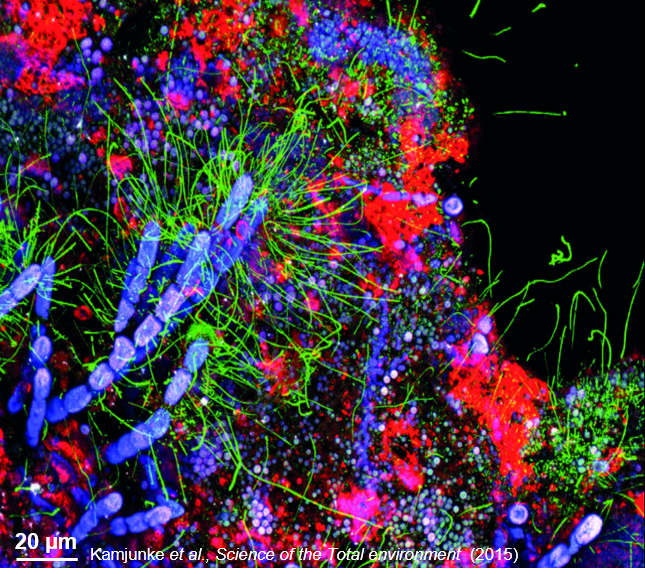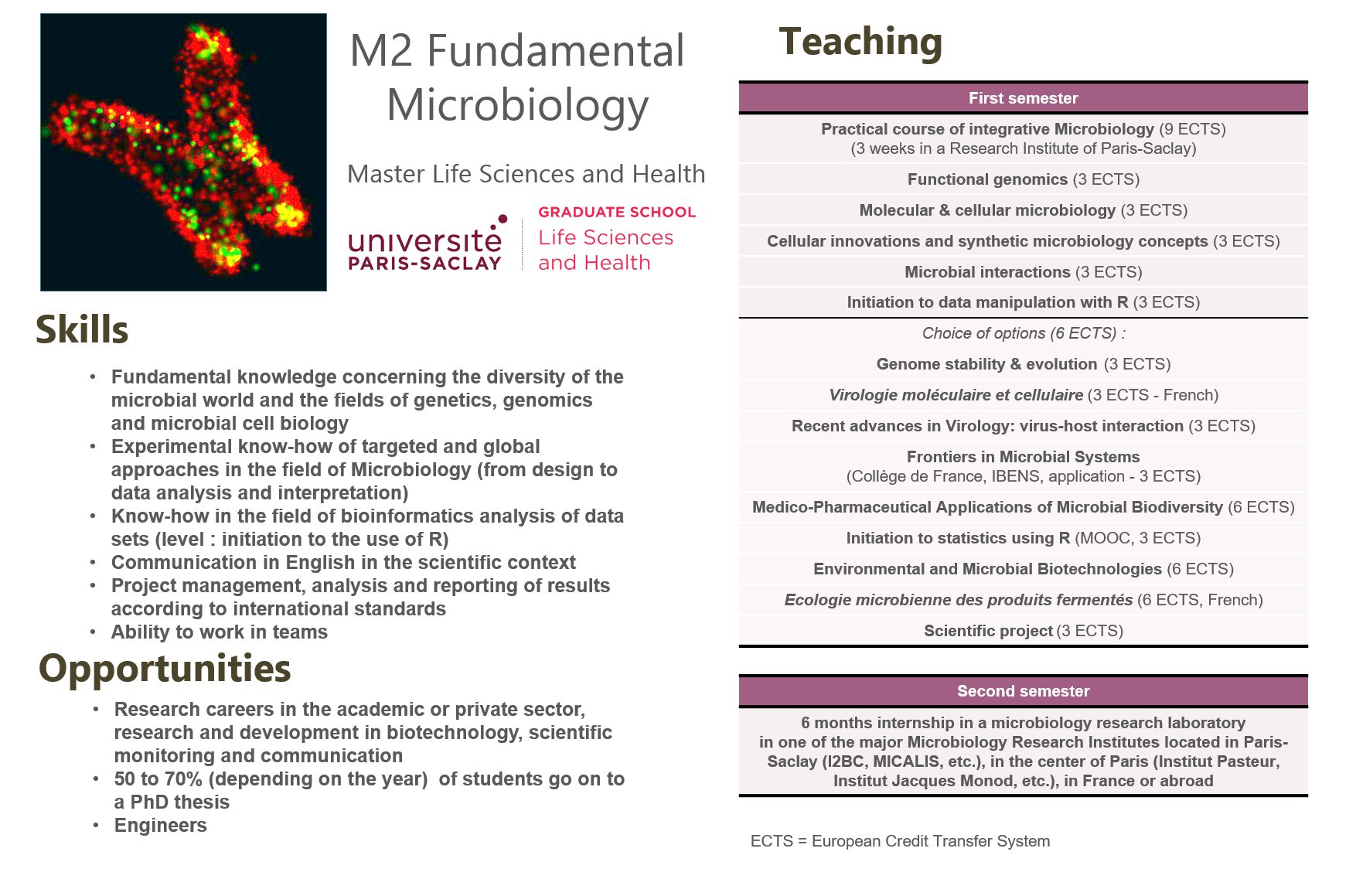
Motto:
"Deciphering the fundamental mechanisms of microbial life to address societal challenges."
Keywords:
Fundamental mechanisms; Genomics; Microbial physiology; Evolutionary overview (bacteria, archaea, eukaryotic microorganisms, viruses); Multi-scale integration (molecules, genomes, cells, interactions); Research immersion; International openness.
The Fundamental Microbiology program leverages recent advances in genetics, genomics, cell biology, and microbial physiology to deliver multidisciplinary training through research and for research. It offers the opportunity to study microorganisms using targeted, global, and/or genetic engineering approaches, with molecular, cellular, or integrated analysis scales (microbial communities, host organisms). The program spans a wide array of models (bacteria, archaea, eukaryotic microorganisms, viruses) and topics to explore and master the immense diversity of microbial processes.
The program emphasizes research immersion and international openness to prepare students for modern challenges in microbiology.
M2 Level Overview:
At the Master 2 (M2) level, the curriculum consists of theoretical courses on:
- Molecular and Cellular Microbiology,
- Functional genomics,
- Microbial interactions,
- An introduction to synthetic microbiology concepts, and
- The use of bioinformatics tools for data analysis.
These theoretical foundations are complemented by a three-week practical course in Integrative Microbiology. Labeled as a “Paris-Saclay” initiative, this course is structured around flagship themes of the Paris-Saclay microbiology community and is primarily conducted in I2BC or MICALIS laboratories. It immerses students in real-world research environments, as teaching occurs directly within research institutes, with active involvement from research teams.
Research Internship:
Students undertake a six-month M2 internship in a laboratory, providing hands-on research training in a microbiology-related field. This internship equips students with experimental techniques, project-writing skills, and oral scientific communication proficiency. Internships can be completed in Paris-Saclay laboratories (e.g. I2BC, MICALIS, IDEEV), renowned research institutions (e.g., Institut Pasteur, Institut Jacques Monod), regional facilities, or internationally.
Career Prospects:
Career pathways include both research and alternative fields:
- Primary career path: Experimental research in academic or private sectors, in laboratories based in Paris-Saclay (e.g. I2BC, MICALIS, IDEEV), major research centers (e.g., Institut Pasteur, Institut Jacques Monod), regional institutions, or abroad.
- Other opportunities: R&D in biotechnology, teaching, scientific monitoring, and science communication.
Career and Further Study Outcomes (2016–2023):
- 60% PhD continuation rate: Over half of M2 graduates pursue doctoral studies.
- 12% enter the workforce at Bac+5 level in roles such as research engineers, teachers, or communication officers within research institutions.
- 20% continue other studies in fields like ENS programs, medical pathways, or clinical research associate roles.
CONTACTS
Supervisors
Pr Olga Soutourinaolga.soutourina@universite-paris-saclay.fr
Pr Stéphanie Bury Moné
stephanie.bury-mone@universite-paris-saclay.fr
Secretary
Solène Florentinsolene.florentin@universite-paris-saclay.fr

